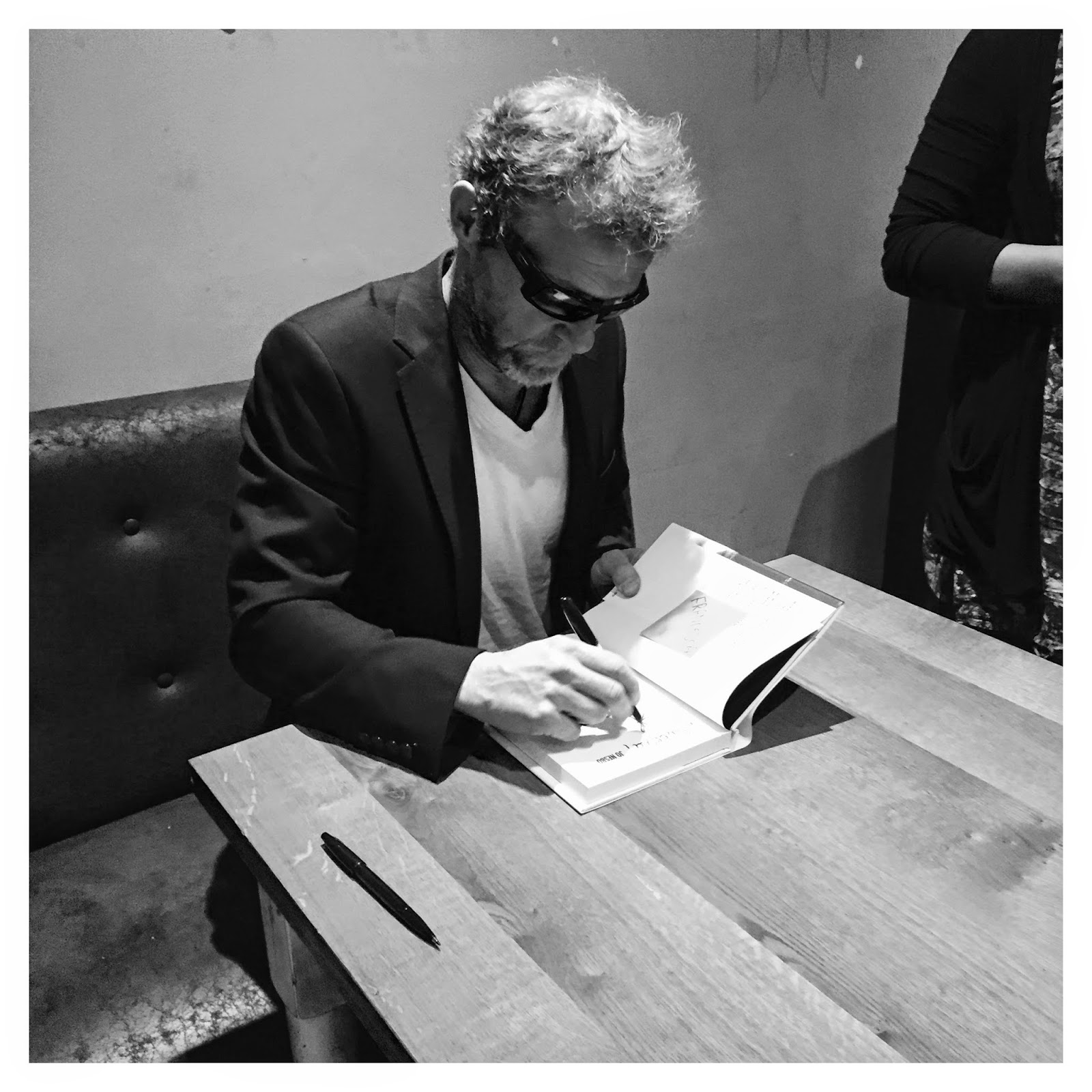It drew me in with the name, looking and sounding like a great story to start my summer reads. I use the word 'story' but it's more than that for Deborah Rodriguez. Her first release, Kabul Beauty Shop: An American Woman Goes Behind the Veil, is actually a memoir of when she first started a life in Afghanistan teaching at the Kabul Beauty School. Whilst The Little Coffee Shop of Kabul is her debut novel, it still holds remnants of a memoir for Rodriguez, from when she co-owned the Cabul Coffee House. However, her latest release, The House on Carnaval Street, has a change of scenery in her new home of Mexico, where she moved having had to flee Afghanistan. It caught my eye recently with another bright cover and made me feel a little behind in her series, real and imagined. So The Little Coffee Shop of Kabul found its way into my handbag.
It's more than just a story, not just for Rodriguez, but for the reader. It is a novel that is invigorating for women, with the story set around five female protagonists, as well as being an insight into Afghanistan. Through the five women, different aspects of Afghanistan are brought together, both the good and the bad. Rodriguez brings into the story the terrorism and the poverty we already see in the media, but she also brings in the beauty it is hard to imagine exists there. She writes an almost unbiased account of the country, with some criticism to the West's involvement as well as criticism of some Afghan traditions, laying no blame other than that on the terrorists for the poverty and destruction. Rodriguez delves into certain parts of the country's poverty, particularly through two of the women. Candace, who left her wealthy husband behind in America for a new just as wealthy life with an Afghan, is constantly looking for new causes to help and make her feel worthy. She begins working with Isabel, a journalist for the BBC she meets at the coffeehouse who is in Afghanistan to investigate the drug lords who own the poppy fields used to produce and distribute opium. However, she finds another cause along the way. Her and Candace begin a mission to rescue women unjustly imprisoned, with various obstacles along the way. The treatment of female prisoners is heartbreaking to read about, and you know it is fiction about fact.
The horrendous way that women can be treated in Afghanistan is reinforced by Yasmina, a woman whose husband died before the novel began but left her pregnant. She is taken from her home by men her uncle owes money to but abandoned on the streets of Kabul when her pregnancy is discovered and she is deemed useless by the men who can no longer sell her. With her husband unknown by those in Kabul, she will be viewed as a prostitute, and would end up most likely in the prisons Isabel and Candace are trying to put a stop to. This is until Sunny sees her and brings her back to the coffeehouse she runs, a business that is a touch of the West in Kabul, where mainly foreigners can come and grab a great cappuccino. The building the coffeeshop is run from is owned by Halajan, a sexagenarian who has experienced various degrees of freedom in her home country. Even with the Taliban not in control, she is still forced to hide love letters from the man she wants to be with, despite her husband being dead as well as the sender's wife. If the letters are discovered, it will bring shame on her family, unless Halajan's son arranges a marriage between them. But Ahmet is a traditional Afghan man, with strict values, who does not believe in marrying for love, until he meets Yasmina.
All five women come together at Sunny's coffeehouse to create a magnificent narrative of life in Kabul; of the determination of women, of the strength of love, as clichéd as it sounds, and of the beauty of a country not just its natives should appreciate. Rodriguez has captured so much of Kabul in these pages that she has made it possible to look past the minority of terrorists that exist there and see the lives of those who are having to live with constant bombings destroying their homes and taking their loved ones. The ending is probably the most unrealistic part of the book, being a fairytale ending typical of a western novel. But if Hollywood can do it, why not Rodriguez? It is hard to fault this narrative, and hard not to be touched by it, whether it is to laugh or cry. However, it still remains light enough, despite all the issues that it tackled, to be a great novel to read whilst sitting out in the sun with a glass (or a jug) of Pimms! I would strongly recommend letting The Little Coffee Shop of Kabul fall into your own handbags this summer.






